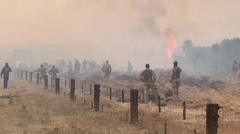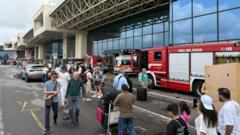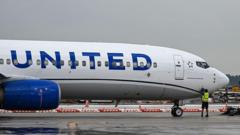Heathrow Airport, one of the world's busiest travel hubs, has come under fire for its electrical infrastructure following a significant power outage caused by a fire at one of its substations. The outage on March 21 forced the airport to close for almost an entire day, causing travel chaos worldwide. Nigel Wicking, the head of the Heathrow Airline Operators’ Committee, revealed to a parliamentary committee that he raised concerns regarding the airport's electricity supply just days before the incident occurred.
In testimony before the British lawmakers, Wicking emphasized the need to address the resilience of the airport's electrical systems, warning of potential vulnerabilities due to possible substation failures. He noted, "We’ve had discussions about the substations," and expressed concern that a lack of backup systems contributed to the widespread disruption resulting from the fire.
The substation fire not only stalled flights but also prompted discussions regarding the overall dependency on the current infrastructure. Experts have indicated that implementing adequate backup systems could cost as much as $100 million and may take several years to establish. Despite these potential costs, airline officials advocate for immediate improvements to prevent future disruptions.
The incident has also highlighted the alarming reality of mundane issues affecting power supply. Wicking pointed out instances of theft near the electrical installations, which have previously compromised safety by impacting runway lighting. "We need to ensure that Heathrow is resilient," he reiterated, emphasizing the airport's vital role in global air travel networks.
With further examinations and recommendations expected in the coming weeks, the issue of infrastructure at Heathrow Airport is set to remain in the spotlight. Travelers and airline operators alike are watching closely for updates on how the airport intends to enhance its resilience against future power outages and safeguard against infrastructure vulnerabilities.
In testimony before the British lawmakers, Wicking emphasized the need to address the resilience of the airport's electrical systems, warning of potential vulnerabilities due to possible substation failures. He noted, "We’ve had discussions about the substations," and expressed concern that a lack of backup systems contributed to the widespread disruption resulting from the fire.
The substation fire not only stalled flights but also prompted discussions regarding the overall dependency on the current infrastructure. Experts have indicated that implementing adequate backup systems could cost as much as $100 million and may take several years to establish. Despite these potential costs, airline officials advocate for immediate improvements to prevent future disruptions.
The incident has also highlighted the alarming reality of mundane issues affecting power supply. Wicking pointed out instances of theft near the electrical installations, which have previously compromised safety by impacting runway lighting. "We need to ensure that Heathrow is resilient," he reiterated, emphasizing the airport's vital role in global air travel networks.
With further examinations and recommendations expected in the coming weeks, the issue of infrastructure at Heathrow Airport is set to remain in the spotlight. Travelers and airline operators alike are watching closely for updates on how the airport intends to enhance its resilience against future power outages and safeguard against infrastructure vulnerabilities.




















